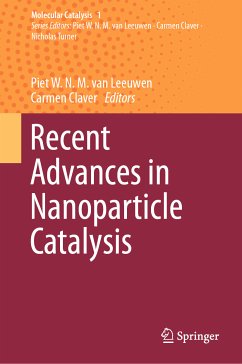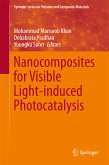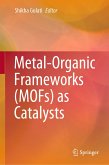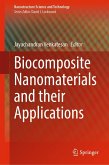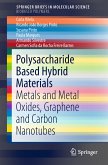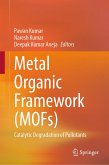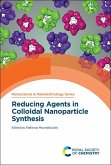Recent Advances in Nanoparticle Catalysis (eBook, PDF)
Redaktion: Leeuwen, Piet W. N. M. van; Claver, Carmen
73,95 €
73,95 €
inkl. MwSt.
Sofort per Download lieferbar

37 °P sammeln
73,95 €
Als Download kaufen

73,95 €
inkl. MwSt.
Sofort per Download lieferbar

37 °P sammeln
Jetzt verschenken
Alle Infos zum eBook verschenken
73,95 €
inkl. MwSt.
Sofort per Download lieferbar
Alle Infos zum eBook verschenken

37 °P sammeln
Recent Advances in Nanoparticle Catalysis (eBook, PDF)
Redaktion: Leeuwen, Piet W. N. M. van; Claver, Carmen
- Format: PDF
- Merkliste
- Auf die Merkliste
- Bewerten Bewerten
- Teilen
- Produkt teilen
- Produkterinnerung
- Produkterinnerung

Bitte loggen Sie sich zunächst in Ihr Kundenkonto ein oder registrieren Sie sich bei
bücher.de, um das eBook-Abo tolino select nutzen zu können.
Hier können Sie sich einloggen
Hier können Sie sich einloggen
Sie sind bereits eingeloggt. Klicken Sie auf 2. tolino select Abo, um fortzufahren.

Bitte loggen Sie sich zunächst in Ihr Kundenkonto ein oder registrieren Sie sich bei bücher.de, um das eBook-Abo tolino select nutzen zu können.
This book provides an overview of the latest developments in the field of nanoparticle catalysis. It not only discusses established topics in detail, but also explores several emerging topics. Catalysis with nanoparticles is expanding exponentially and is attracting significant interest due to the many exciting findings being reported. Mastering the synthesis, characterization, stabilization and use of these catalysts offers numerous possibilities that far exceed those of classic heterogeneous and homogeneous catalysis.
- Geräte: PC
- ohne Kopierschutz
- eBook Hilfe
- Größe: 22.76MB
Andere Kunden interessierten sich auch für
![Nanocomposites for Visible Light-induced Photocatalysis (eBook, PDF) Nanocomposites for Visible Light-induced Photocatalysis (eBook, PDF)]() Nanocomposites for Visible Light-induced Photocatalysis (eBook, PDF)113,95 €
Nanocomposites for Visible Light-induced Photocatalysis (eBook, PDF)113,95 €![Metal-Organic Frameworks (MOFs) as Catalysts (eBook, PDF) Metal-Organic Frameworks (MOFs) as Catalysts (eBook, PDF)]() Metal-Organic Frameworks (MOFs) as Catalysts (eBook, PDF)129,95 €
Metal-Organic Frameworks (MOFs) as Catalysts (eBook, PDF)129,95 €![Biocomposite Nanomaterials and their Applications (eBook, PDF) Biocomposite Nanomaterials and their Applications (eBook, PDF)]() Biocomposite Nanomaterials and their Applications (eBook, PDF)186,95 €
Biocomposite Nanomaterials and their Applications (eBook, PDF)186,95 €![Polysaccharide Based Hybrid Materials (eBook, PDF) Polysaccharide Based Hybrid Materials (eBook, PDF)]() Carla VilelaPolysaccharide Based Hybrid Materials (eBook, PDF)40,95 €
Carla VilelaPolysaccharide Based Hybrid Materials (eBook, PDF)40,95 €![Metal Organic Framework (MOFs) (eBook, PDF) Metal Organic Framework (MOFs) (eBook, PDF)]() Metal Organic Framework (MOFs) (eBook, PDF)145,95 €
Metal Organic Framework (MOFs) (eBook, PDF)145,95 €![Green Organic Reactions (eBook, PDF) Green Organic Reactions (eBook, PDF)]() Green Organic Reactions (eBook, PDF)137,95 €
Green Organic Reactions (eBook, PDF)137,95 €![Reducing Agents in Colloidal Nanoparticle Synthesis (eBook, PDF) Reducing Agents in Colloidal Nanoparticle Synthesis (eBook, PDF)]() Reducing Agents in Colloidal Nanoparticle Synthesis (eBook, PDF)208,95 €
Reducing Agents in Colloidal Nanoparticle Synthesis (eBook, PDF)208,95 €-
-
-
This book provides an overview of the latest developments in the field of nanoparticle catalysis. It not only discusses established topics in detail, but also explores several emerging topics. Catalysis with nanoparticles is expanding exponentially and is attracting significant interest due to the many exciting findings being reported. Mastering the synthesis, characterization, stabilization and use of these catalysts offers numerous possibilities that far exceed those of classic heterogeneous and homogeneous catalysis.
Dieser Download kann aus rechtlichen Gründen nur mit Rechnungsadresse in A, B, BG, CY, CZ, D, DK, EW, E, FIN, F, GR, HR, H, IRL, I, LT, L, LR, M, NL, PL, P, R, S, SLO, SK ausgeliefert werden.
Produktdetails
- Produktdetails
- Verlag: Springer International Publishing
- Seitenzahl: 454
- Erscheinungstermin: 1. Juli 2020
- Englisch
- ISBN-13: 9783030458232
- Artikelnr.: 59806107
- Verlag: Springer International Publishing
- Seitenzahl: 454
- Erscheinungstermin: 1. Juli 2020
- Englisch
- ISBN-13: 9783030458232
- Artikelnr.: 59806107
- Herstellerkennzeichnung Die Herstellerinformationen sind derzeit nicht verfügbar.
Carmen Claver is Professor of Inorganic Chemistry at the University Rovira i Virgili (URV) in Tarragona, Spain, since 1991. A group leader since 1985, her research focuses on the development of novel selective catalysts, synthesis of ligands and complexes for catalytic applications, catalyst heterogeneization, continuous flow processes, nanocatalysis and catalysis for CO2 transformation. She was Vice-Rector of Research at URV (1993-1997), a Catalan Government Distinguished Researcher (2003) and a member of the CNRS Scientific Council (2009-2014). She was awarded the "Narcis Monturiol" medal for her contributions to scientific and technological development in Catalonia (2007) and the "Pierre de Fermat" Chair of Excellence in France (2009). Her other awards include "Ciamician-Gonzalez" Lecturer Award by "Real Sociedad Española de Química" and "Società Chimica Italiana" (2014) a Gold Medal for Research on Organometallic GEQO-RSEQ (2015) and the "Miguel Catalán - Paul Sabatier" Prize, Societé Chimie Française (2016) She is a correspondent member of the Royal Academy of Sciences of Spain (since2010) and a member of the Academia European (since2012). She has been the Scientific Director of the Technological Center for Chemistry of Catalonia (2009-2020). She is a Doctor "Honoris Causa" at the University Paul Sabatier, Toulouse (2019). Piet van Leeuwen joined Shell Amsterdam in 1968 to work on organometallic catalysis. Since 1978 he has been head of the section "Fundamental Aspects of Homogeneous Catalysis". In 1990, he founded the homogeneous catalysis group at the University of Amsterdam and moved there full-time in 1994. From 2000 to 2005 he was a Professor of Industrial Homogeneous Catalysis in Eindhoven and Director of NRSC Catalysis. In 2004, he became a group leader at ICIQ in Tarragona. In 2015, he moved to LPCNO in INSA Toulouse, where he holds an IDEX Chair. He was the first to takeadvantage of the effect of large steric bulk in rhodium-catalyzed hydroformylation, a huge area today. He is well known for his mechanistic work on catalytic C-C bond formations, introduced dendrimers as catalophores, secondary phosphine oxides as ligands in catalysis, and numerous new, highly efficient ligands, including xantphos ligands. Since 2009 his work has focused on ligand effects in metal nanoparticle catalysis. He was awarded a Marie Curie Chair of Excellence in 2005 and an ERC Advanced Grant in 2010. He received the Holleman Award from the Netherlands Academy for Arts and Sciences. He is a Doctor Honoris Causa at the University Rovira i Virgili, Tarragona, Spain, and of the Universidade Federal Rio Grande do Sul, Brazil. In 2019, he received the Alwin Mittasch Prize.
1. Introduction.- 2. Small size Nanoclusters in Catalysis.- 3. Precise nano clusters as catalysts.- 4. Catalysts via Atomic Layer Deposition.- 5. Magnetic heating of nano catalysts.- 6. Earth-abundant metal nanocatalysis in alternative solvents.- 7. MNP catalysis in Ionic Liquids.- 8. Metal NPs confined in CNT.- 9. Covalent assembly of metal nanoparticles - strategy for synthesis and catalytic.- 10. Catalysis with MNPs on N-doped carbon.- 11. Catalysis with MNPs in MOFs.- 12. Oxidation Pending.- 13. RuNPs for labelling of NMR probes in biochemistry.- 14. Nanoparticle hydrogenation of alkynes.- 15. Selective hydrogenation of aldehydes.- 16. Ligand effects in Ruthenium Nanoparticle Catalysis.
1. Introduction.- 2. Small size Nanoclusters in Catalysis.- 3. Precise nano clusters as catalysts.- 4. Catalysts via Atomic Layer Deposition.- 5. Magnetic heating of nano catalysts.- 6. Earth-abundant metal nanocatalysis in alternative solvents.- 7. MNP catalysis in Ionic Liquids.- 8. Metal NPs confined in CNT.- 9. Covalent assembly of metal nanoparticles - strategy for synthesis and catalytic.- 10. Catalysis with MNPs on N-doped carbon.- 11. Catalysis with MNPs in MOFs.- 12. Oxidation Pending.- 13. RuNPs for labelling of NMR probes in biochemistry.- 14. Nanoparticle hydrogenation of alkynes.- 15. Selective hydrogenation of aldehydes.- 16. Ligand effects in Ruthenium Nanoparticle Catalysis.
